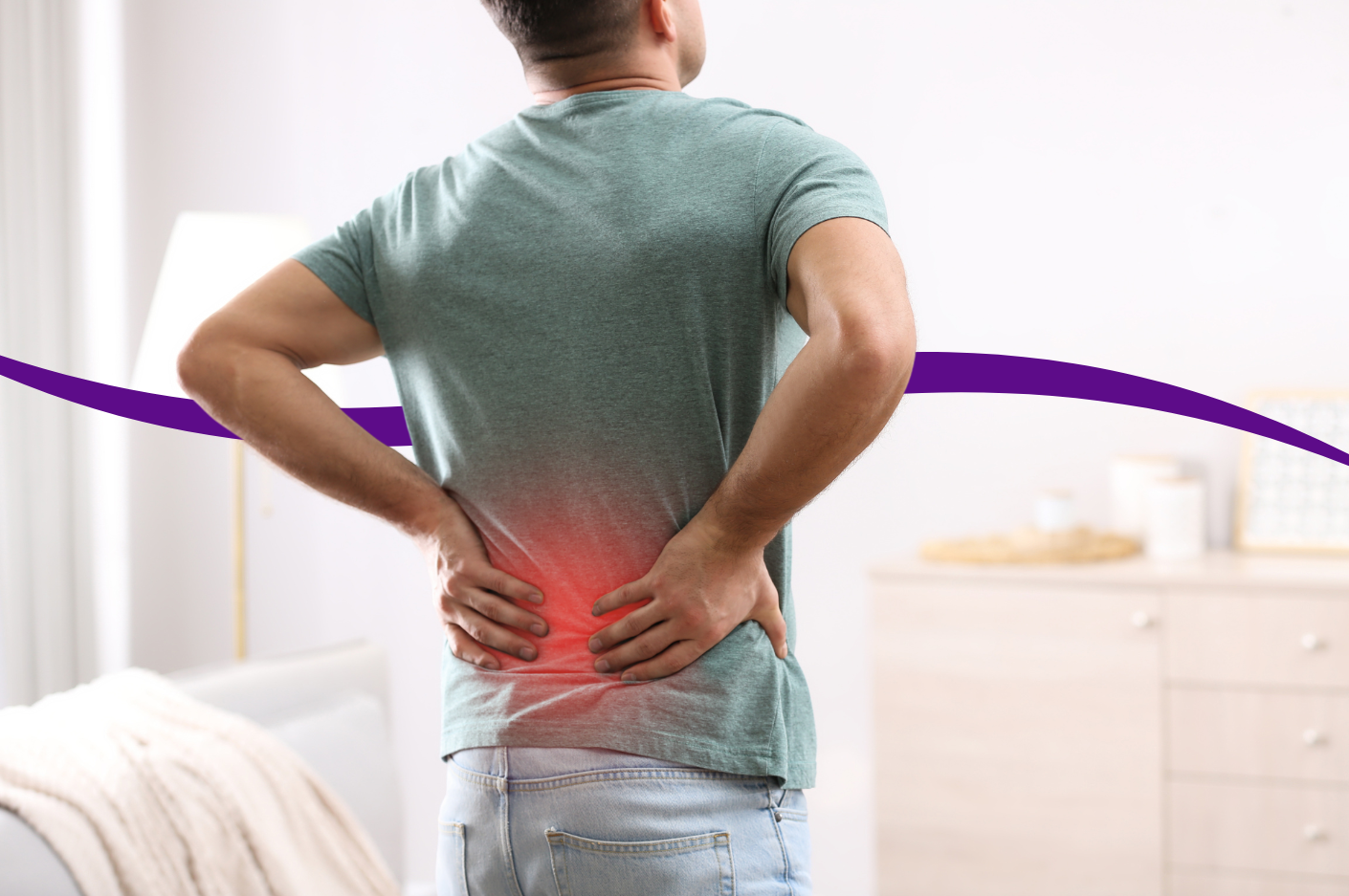
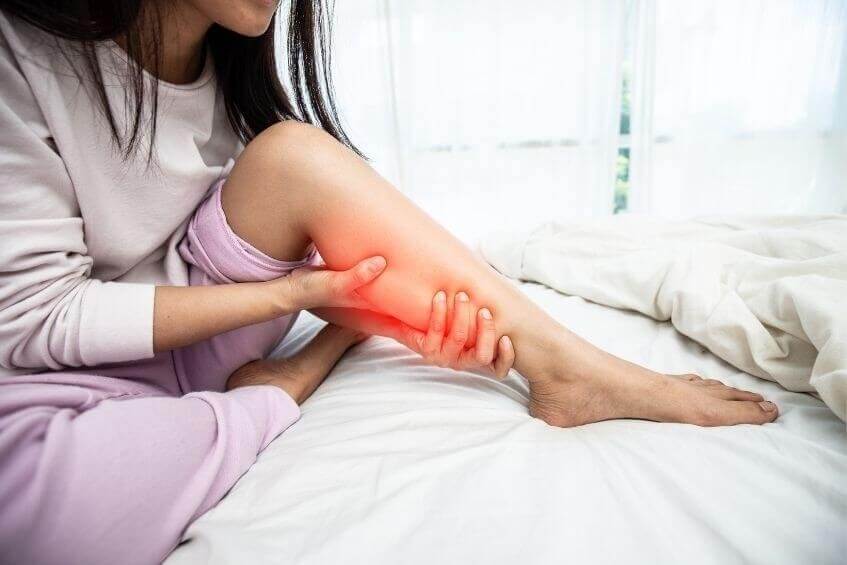
Is pain in your legs causing you to have restless sleep? Is it preventing you from falling asleep easily? It’s a very common and frustrating issue, and not something you should just put up with.
Your legs carry the load of your body throughout the day, but that doesn’t mean they should be causing you pain, especially at night.
Stabbing pain, dull aching or a strange tingling sensation are common complaints heard by our podiatrists. These are often symptoms of an issue, rather than the issue itself, and a medical professional can help to diagnose and treat your troublesome legs.
We’ve compiled a list of common issues that could be causing your aching legs at night, and come up with helpful suggestions that can help to manage your symptoms. If you continue to experience pain, book in to see one of our podiatrists.
1. Cramps
When your muscles are fatigued, certain body movements can trigger cramps. If you’re experiencing cramps at night, this could be from restlessness and turning over in bed. This triggers the muscle causing it to cramp. Interestingly, they can also be caused by a lack of movement, specifically if you hold a position for a long period of time.
Dehydration and a lack of salts in your body fluids are also common causes of cramps. If you’re exercising and using all the water sources in your body, this can change the salt levels in your fluids. This change in levels results in altered signals sent between the nerves and muscles, causing your muscles to twitch or cramp.
To avoid this, we suggest making an active effort to keep hydrated and well fed. We may also recommend magnesium supplements, however this is only after our podiatrist has assessed your issue and medical history.
2. Inflammation of muscles/tendons
You may experience pain and inflammation in your muscles and tendons during the night as these muscles are healing while you sleep, especially if you have an injury. However, it is not a common symptom of injury pain and may indicate a greater severity of the injury or problem at hand. Hence, it is important that if this is happening to you to seek professional advice.
A couple of at-home treatments you could try initially include anti-inflammatory medication (if you can take it), making sure you find a comfortable position while sleeping, and applying cold or heat packs to help reduce your symptoms. Please be careful in regard to heat and ice burns.
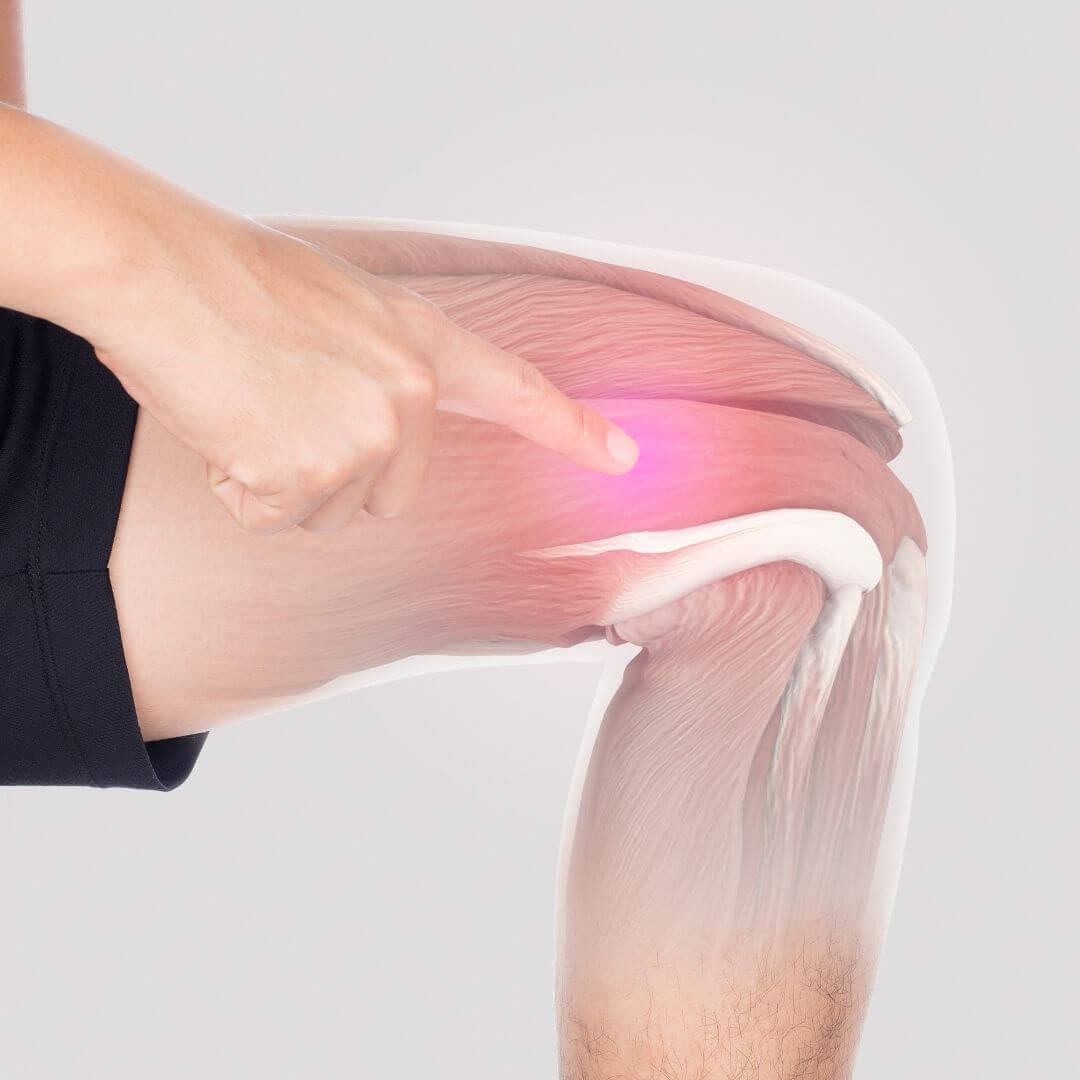
3. Bone Fracture
Common symptoms you may experience are aching pain in the bone which is present during both the day and night. If it is a bone fracture, your pain typically doesn’t settle when you’re at rest, unlike stress fractures, when pain is primarily felt during weight-bearing exercise and only occasionally occurs at night.
Bone fractures generally occur as a result of a single incident, meaning you can probably pinpoint the exact time when it occurred, such as from a heavy knock, or if the bone was exposed to a high load from a major fall etc. It will often feel like the bone itself is sore instead of the surrounding muscles, and you can often pinpoint the exact sore spot.
Anti-inflammatory medications and resting in a comfortable position can help to ease your pain, however your body's pain is signalling to you that something isn’t quite right. Therefore, if you suspect a bone fracture, you should get it investigated by a medical professional as soon as possible to prevent any serious future complications.
4. Blood clots
Blood clots often occur to people who have recently been travelling, especially those that were on long distance flights or sitting for long periods of time.
.jpg)
The physical presence of a blood clot will alert you to something being wrong. Common symptoms include:
It is strongly recommended that you seek help from a medical professional as soon as possible if you are experiencing any of these
symptoms.
5. Vein issues
Varicose veins are enlarged, swollen and twisted veins that are the result of poor circulation, and are particularly common in people with fluid retention issues. This means the veins aren’t working as well as they should, so over the course of the day, the pressure in your leg can increase from leaky valves or weakened vein walls. This creates an aching pain and heavy feeling in your legs, which worsens at night after a day spent mostly on your feet.
To aid the pumping of “pooling blood” you can try the following:
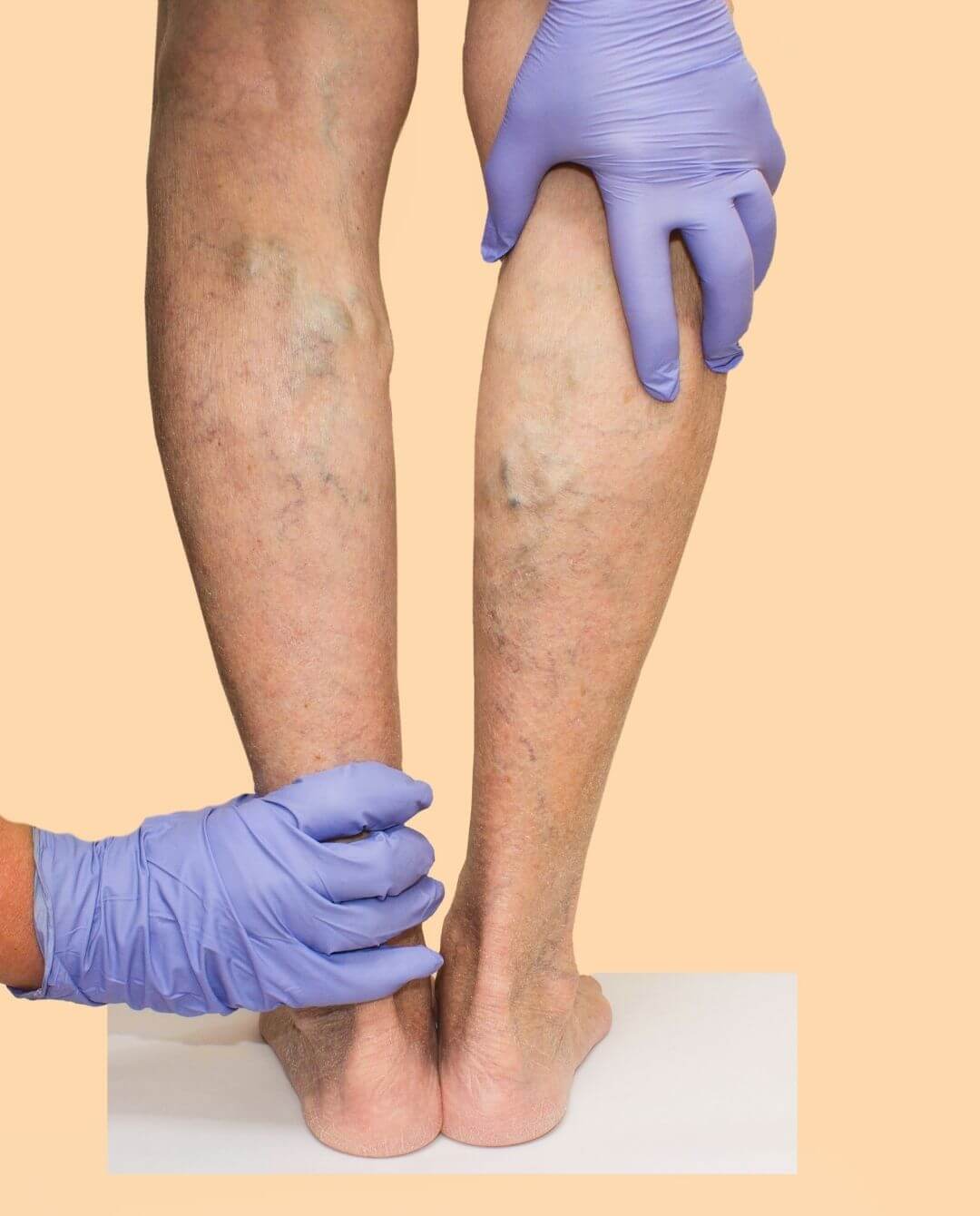
6. Artery disease
When not enough blood is getting to your feet, this lack of circulation can cause pain in your leg muscles. People often help to alleviate this pain by hanging their legs over the side of the bed or standing up, which sends blood pumping back through the feet (thank you gravity). This pain can affect one or both sides and is generally in the calves. You can also experience this pain with activity, and pain is relieved almost immediately by cessation of activity.
Unfortunately, an increased risk of peripheral arterial disease is commonly associated with the following:
Our podiatrists at The Feet People can help diagnose the above circulation problems and recommend an action plan. However, we do also
recommend seeing your general practitioner if you’re experiencing similar symptoms, especially if you’re showing signs of a
blood clot.
7. Nerve pain
You may experience nerve pain during the night as the pressure of sleeping in a particular position may aggravate or cause compression of a nerve. This pain may cause you to wake up with sharp, stabbing pain and/or numbness and tingling. This pain may not occur during your daily activities.
Nerve pain can occur in a ‘one off case’ or be attributed to various medical conditions such as neuropathies. Neuropathies cause damage to the nerves, resulting in altered sensations or increased sensitivity.
Often movement can help with your nerve pain. Performing gentle movements to encourage the muscles to warm up through improved circulation can be an effective way to ease your symptoms.
There are other treatment options available too, which our podiatrist or your doctor can help in finding the best option for you.
8. Pregnancy
It’s very common to have aching and tired legs during pregnancy. This occurs because of the increased blood volume and extra strain you’re placing on your body as you carry more weight that it is not use to carrying. Your uterus is also putting extra pressure on the veins responsible for carrying blood back from your lower body. This partially blocks the blood flow, keeping the fluid in your legs and feet, which causes them to become swollen and tired.
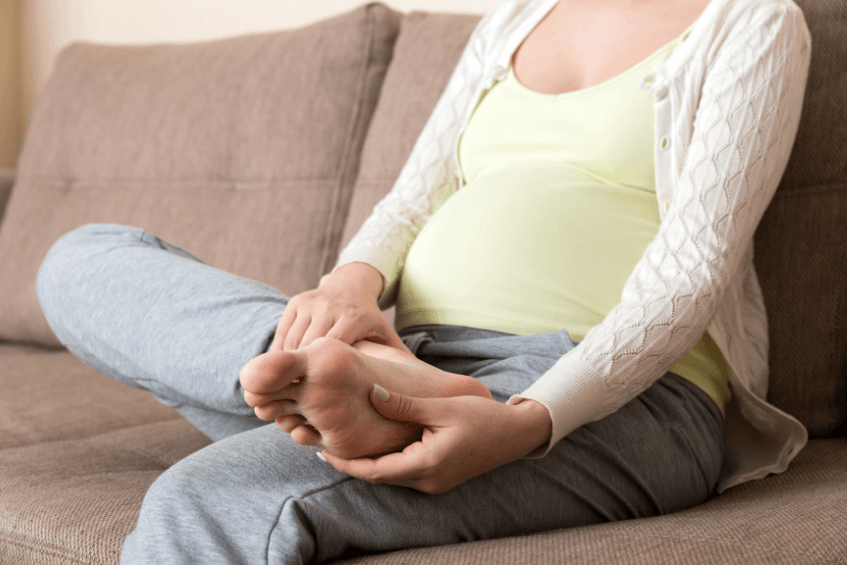
Gentle stretching and massage can help to relieve the tightness and fatigue felt through the legs and feet (maybe from a kind partner or
friend!). If this is not effective, our podiatrists can also help with these issues by prescribing specific exercises, giving advice on
footwear, educating about these common issues, and offering custom
orthotics
to offload the high pressure areas.
9.
Gout causes intense pain and swelling around the joints (often starting in the big toe). It is triggered by a chemical reaction, causing the deposit of urate crystals in the impacted joint.
Attacks usually occur when you have been consuming certain foods and drinks that are high in purine. It will often flare up when people drink beer or red wine and rich foods such as cheeses and red meats. Seemingly, we often see a higher incidence of gout after major events like the State of Origin or Super Bowl, where people are likely to let loose on indulgent food and drink.
As gout occurs due to an out of balance chemical reaction in the joint, it often needs specific medicine to ease the symptoms, so we recommend seeing your GP.
.jpg)
If chronic recurrent attacks occur you may develop secondary osteoarthritic changes in the affected joint. This is where our team of
podiatrists can help you manage that painful joint.
Many causes of lower leg pain are not serious and something that our podiatrists can address and treat. If you’re experiencing regular lower leg pain, then we recommend seeking medical advice from one of our Brisbane podiatrists or a GP.
Book your appointment with our podiatry team online here or call us on (07) 3356 3579.
| Monday | 7:40am - 6:00pm |
| Tuesday | 7:40am - 6:00pm |
| Wednesday | 7:40am - 6:00pm |
| Thursday |
7:40am - 6:00pm |
| Friday | 7:40am - 2:00pm |
| Saturday | CLOSED |
| Sunday | CLOSED |
Ground Floor, 344 Queen Street,
Brisbane City QLD 4000
| Monday | 7:40am - 6:00pm |
| Tuesday | 7:40am - 6:00pm |
| Wednesday | 7:40am - 6:00pm |
| Thursday |
7:40am - 6:30pm |
| Friday | 7:40am - 5:00pm |
| Saturday | 7:40am - 4:30pm |
| Sunday | CLOSED |
Newmarket Village, 114/400 Newmarket Rd, Newmarket QLD 4051